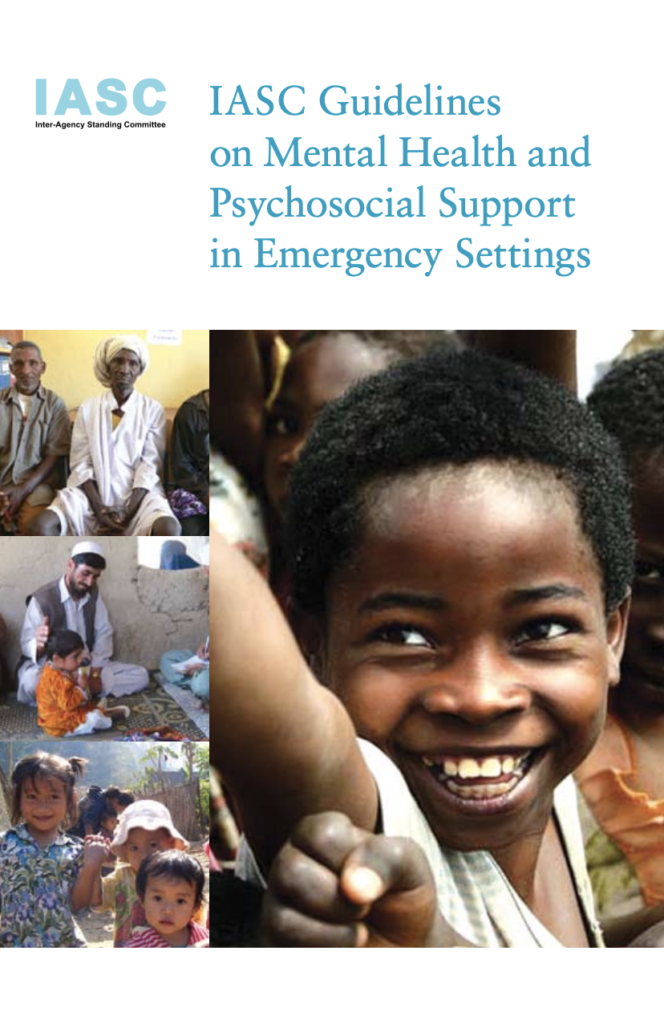The primary purpose of these guidelines (2007) by the IASC (Inter-Agency Standing Committee) is to enable humanitarian actors and communities to plan, establish and coordinate a set of minimum multi-sectoral responses to protect and improve people’s mental health and psychosocial well-being in the midst of an emergency. The focus of the guidelines is on implementing minimum responses, which are essential, high-priority responses that should be implemented as soon as possible in an emergency. Minimum responses are the first things that ought to be done; they are the essential first steps that lay the foundation for the more comprehensive efforts that may be needed (including during the stabilised phase and early reconstruction). To complement the focus on minimum response, the guidelines also list concrete strategies for mental health and psychosocial support to be considered mainly before and after the acute emergency phase. These ‘before’ (emergency preparedness) and ‘after’ (comprehensive response) steps establish a context for the minimum response and emphasise that the minimum response is only the starting point for more comprehensive supports.
IASC Guidelines on Mental Health and Psychosocial support in Emergency settings

- Published:
- 1 January 2007
- Region:
- Global
- Topics:
Share this:
IASC Guidelines on Mental Health and Psychosocial support in Emergency settings
Related:
Securing aid worker safety through effective budgeting
In this article for the Crisis Response Journal, Aisling Sweeney, GISF's Communications Officer, puts forward the case for remodelling funding processes for humanitarian security risk management.